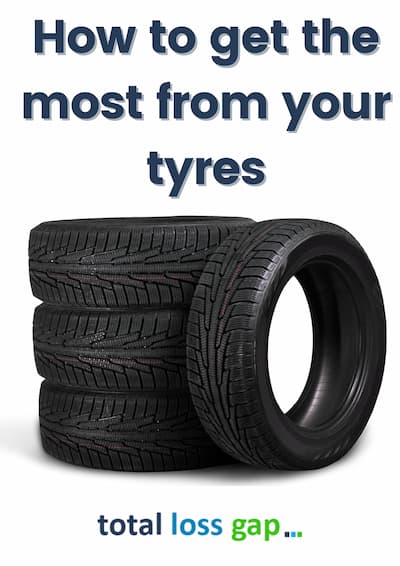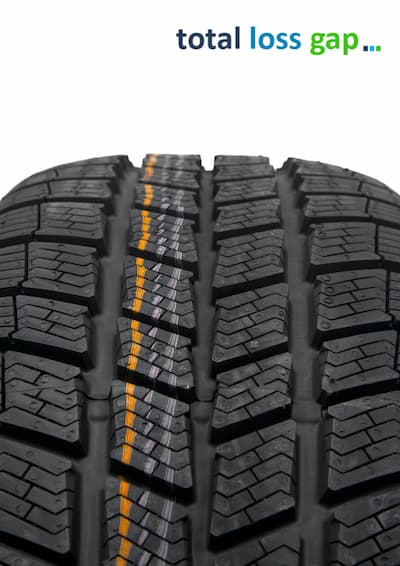Call Monday-Friday 9am - 6pm Closed Saturday & Sunday



[ Contact Us ]
Need Help? Calling from a mobile please call 0151 647 7556
0800 195 4926Do you have a question? or need help?
Call Monday-Friday 9am - 6pm Closed Saturday & Sunday,
The car tyres are one of the most critical aspects of your vehicle. They provide grip and stability, and they protect you from skidding or sliding on a slippery surface. Tyres provide your only contact between the car and the road.
Remember also you are breaking the law if you drive around on tyres in poor condition. The UK's minimum legal tyre tread depth is 1.6mm across the middle three quarters of the tyre.
Tyres deemed illegal can lead to a fine of up to £2,500 per car tyre and three penalty points for the driver. 
Tyres for your car are not cheap either. It makes sense for you to try to get the maximum life out of the tyres and ensure they are safe to use.
If you desire to make your tyres last longer, try these simple tips that we have put together for you:
Check your tyre pressure regularly. Do not inflate your tyres too much, but do not let them run low in pressure either. This will help prevent the excess heat caused by running on under-inflated tyres, which can cause tyre cracking and damage over time. Check your car manual for the optimal psi levels of each wheel before filling up with air at a petrol station.
Another impact of underinflating your tyres is that you could use more fuel, as the fuel economy performance of your vehicle can be adversely impacted.
Always check your tyre pressures before a long trip, and in any case, at least once a month. Your owner's manual will confirm the correct PSI you need.
Several different problems can cause uneven wear on a tyre. These include:
Rectifying these problems early can save you from replacing the tyre if it wears past the legal limit. Leaving a problem unchecked can mean a replacement tyre, and you still have to get the problem solved.
Abnormal wear can also be caused by driving over rough surfaces like potholes, speed humps or steel plates lying around in car parks. You may wish to pay attention to the condition of the roads you typically use and switch routes if necessary.
Make sure you have the wheel alignment checked every few months. One possible indicator of this is if your steering wheel is slightly out of line when you drive in a straight line. If your wheels are not aligned, this can make tyres wear unevenly and also see your fuel bills to increase through uneconomic driving.
Your car can cause damage to the front tyre and increases your risk of breaking the sides of the sidewall. Avoid hitting a kerb by staying spatially alert and using your mirror for parking cautiously. Remember to use mirrors when you try to get into the turning lane faster.
Rotation of the tyres means you move the tyres on the rear axle to the front and vice versa. You can only do this if the tyres on the front and rear of the car are the same size. There may be other restrictions on doing this, so ensure your check the manufacturers' handbook before you do anything.
If you rotated your tyres every 5k-10k miles, then this should be fine. Rotating tyres can be one of the best methods for ensuring even tyre wear and make them last longer.
If you are carrying extra weight in your boot, this could affect the lasting wear of the tyres fitted to the car. Do not overload your car with people or luggage if it means that the tyre sidewalls can touch any part of your load.
If you must carry a heavier load for a journey, consider increasing the tyre pressure to aid driving. Check your manufacturers' recommendations for driving with a heavy load.
Do not carry unnecessary stuff in your boot, as this will increase the weight of your car. You can easily forget what is in your boot also.
Having things heavy in the back can also mess up with the balancing and handling, so it's better to avoid having extra weight lying around inside the boot.
 Drive evenly to avoid wearing out your tyres
Drive evenly to avoid wearing out your tyres
Your driving style can have a significant impact on how quickly your tyres will wear out. If you accelerate, corner or break quickly, then this can increase wear on your tyres.
Try to drive evenly, braking and accelerating at the same time. This stops your tyres from overworking when you push them hard in one direction than another.
If you are trapped on a busy road, never weave between lanes of traffic or lane-hop. Instead, stay in one single lane until there is space for you to move into it.
If there is a puddle in front of your car, try to avoid driving through it. Driving through water can cause damage (a hidden pothole, glass etc.) and increase the risk of skidding on wet roads.
Chances are you will not see any puddles or flooded areas if it is dark. If this happens, make sure your headlamps and windscreen wipers work correctly to improve visibility during bad weather conditions.
If you take the time to maintain your car tyres and keep them in good shape, then your tyres last longer. We've provided you with six tips that will help prolong your tyre lifespan for years of driving pleasure in this article.
It doesn't take much effort to rotate your car's tyres or check their pressure regularly, but this can make all the difference when it comes to reducing wear and tear on your vehicle.
Remember this advice in mind next time you are behind the wheel of your vehicle!
Which one do you think is most important? Will you try them to see if they make your tyres last longer?
Let us know by sharing our blog post and let us know which tip was most helpful for you today or if you have any great tips we have missed.